Every single research paper starts with a single question: what do you want to investigate and find out? Answering this question leads to building a hypothesis, that in its turn drives your research further. Building a good hypothesis becomes the foundation of the whole writing process. As such, no matter whether you are already in the middle of your research, or just thinking about starting, this guide will help you learn how to word a hypothesis so that it doesn’t lead all your examination efforts to a dead end.

✅ AI Essay Writer ✅ AI Detector ✅ Plagchecker ✅ Paraphraser
✅ Summarizer ✅ Citation Generator
What is a Hypothesis
Even though you have probably already gotten a slight idea of what a hypothesis is, let’s define this term properly and clearly.
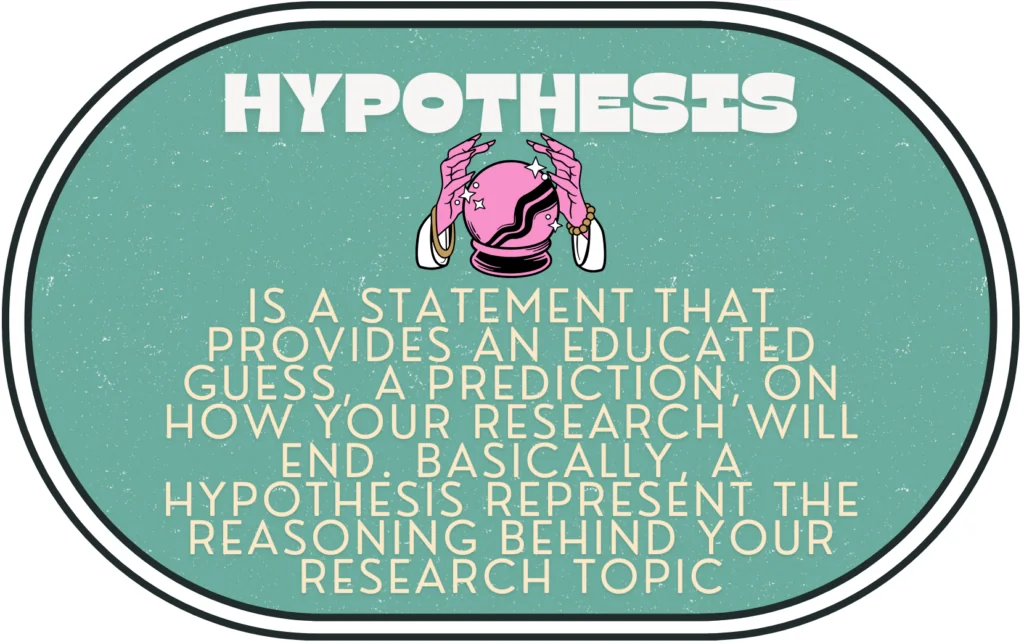
As you can see a hypothesis statement should give a scientific prediction (based on your observations as a researcher) as to what the end result of your findings might be. You should keep in mind though, that you can’t build a hypothesis just from your head. It should be formed on the already existing knowledge and theories. Of course, it usually takes a new direction rather than exploring the same subjects that were already found. Yet still, your hypothesis should a) relate to the knowledge base and subject behind your research, and b) be probable, meaning, it should have the possibility to be true.
Here are a few examples of hypothesis statements so that you have a clear idea of what we are talking about:
- Environmental Science:
“If the rate of deforestation increases in the Amazon rainforest, then local river ecosystems will experience lower water levels and reduced biodiversity because deforestation disrupts the natural water cycle and habitat of species.” - Psychology:
“If high school students receive mindfulness training, then their levels of exam stress will decrease compared to those who do not receive such training because mindfulness helps in reducing anxiety and improving emotional regulation.” - Nutrition Science:
“If individuals increase their intake of probiotic-rich foods, then their digestive health will improve over six months because probiotics support beneficial gut bacteria which aid in digestion and prevent common gastrointestinal disorders.”
Variables Included in a Hypothesis Statement
When thinking about a hypothesis statement, you will always operate with variables. These are the building blocks of your hypothesis. Three main types of variables are always included in the research prediction:
- Control
- Extraneous
- Confounding
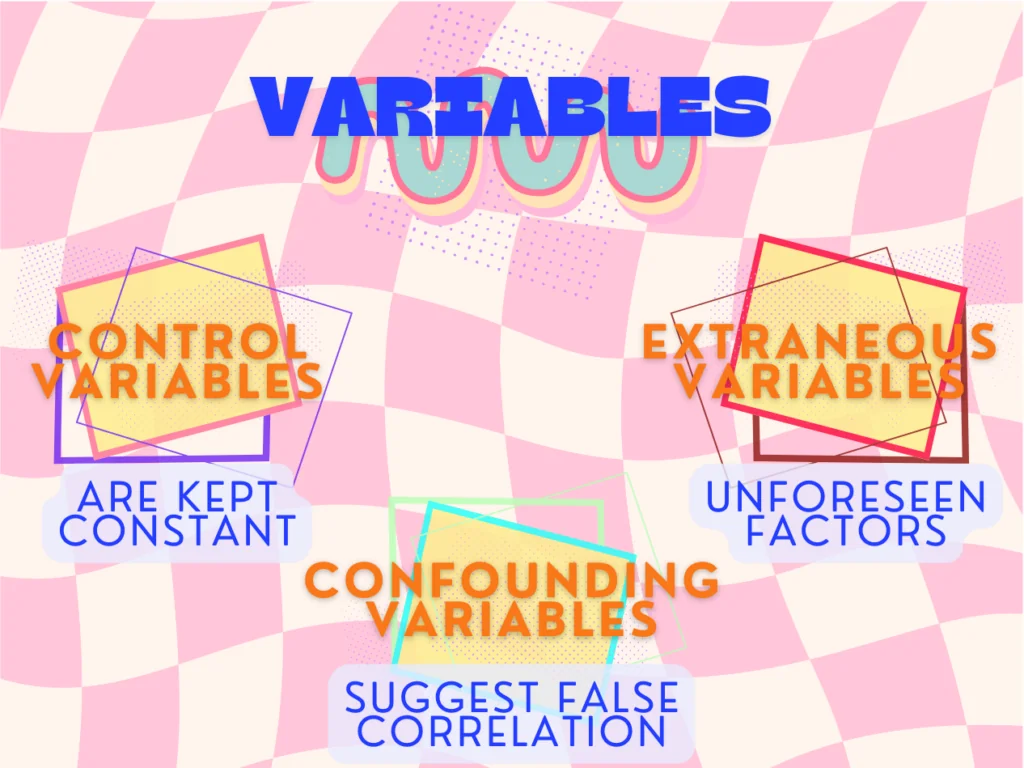
Control variables are kept constant throughout the experiment to make sure that the only factors affecting the results are the independent (the ones that you change) and dependent (those that you can only observe) variables. For instance, when studying the effect of sunlight on happiness, you’d want to control for other factors that could influence mood, such as physical activity or social interactions.
Extraneous variables are unforeseen factors that influence your results but aren’t of primary interest. If some participants in the sunlight study are naturally more outdoorsy, their inherent exposure to sunlight could distort your results. Identifying and minimizing these variables is key to making your findings accurately reflect the relationship between the variables under study.
Confounding variables are specific types of extraneous variables that can actually interfere with the relationship between the independent and dependent variables. They might even suggest a false correlation, making it appear as though the independent variable has an effect when it does not. In our sunlight example, if people who spend more time in the sun are also more active and social, these lifestyle factors could be the real cause of increased happiness, rather than the sunlight exposure itself.
How to Write a Hypothesis Statement That’s Good
If you were attentive, you noticed that in all of the examples of hypothesis statements, there’s a similar pattern when it comes to their structure. All the sentences start with an “if”, proceed with an assumption, after which follows “then” and another assumption regarding what happens, and then continue with a “because” statement, which justifies what was said.
Following such a structure, build your hypothesis as a prediction or guess what you think will happen in your study. It should clearly link two things: if one thing happens (that’s your cause), it will lead to something else happening (that’s your effect). This link should be crystal clear in an “if this, then that” format, making it easy for anyone to understand what you’re testing.
Now, your hypothesis needs to be something you can actually test. This means you should be able to run experiments or gather data to see if your prediction holds up. It’s like saying, “I think A causes B, and I can set up a test to see if I’m right.” Make sure you can manipulate and measure the things you’re curious about (variables).
Keep the wording of your hypothesis simple. If it sounds too complex or jargon-filled, try simplifying it. You want everyone, not just experts, to get what you’re saying. If you can explain it easily to a friend who knows nothing about your study and they get it, you’re on the right track.
Also, think about the ethics of what you’re proposing. Every good hypothesis should steer clear of any shady research practices. It’s not just about what you can test, but also about what you should test, ethically speaking.
And lastly, before you lock in your hypothesis, do your homework—really dig into the existing research. Search for what’s already known and what questions haven’t been answered yet. The best hypotheses often come from spotting these gaps and asking new questions that push the boundaries of our current understanding.
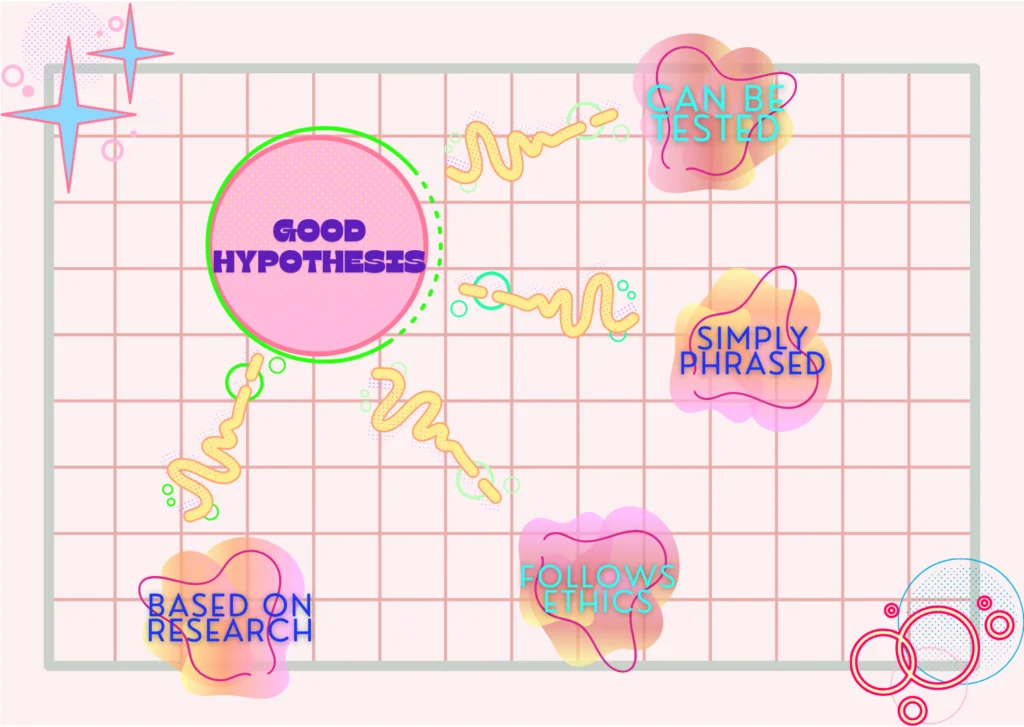
How to Write a Hypothesis: Breaking Down The Process Step-by-Step
You now know all the basics of what makes a good research hypothesis. You know all the different variables it includes, and how it usually sounds. So, the time has come for you to learn how to start a hypothesis and how to end it. Let’s jump straight to our guide then and finally explain what writing the key research statement looks like.
Start with a Question
Curiosity didn’t just kill the cat—it also fuels great scientific inquiries. Begin by asking questions about the observations and phenomena around you. Why do these people behave like that? Or what makes this mechanism work as it does? Pick something that gets you intrigued, because if you’re curious, you’ll be more engaged in finding the answers.
Do Preliminary Research
As you’ve asked your questions, dive into some initial research to get a handle on your topic. This doesn’t mean you have to bury yourself in books right away—a simple web search might be enough at this stage. The goal here is to gather enough background to frame your hypothesis, not to prove it just yet.
Define Your Variables
Pin down which elements in your study will change and which will be measured. The changing elements are your independent variables, and what you measure in response are your dependent variables. Understanding these helps clarify your focus and makes your hypothesis manageable.
Phrase It as an If-Then Statement
After the major work is done, it’s time to set up a clear cause-and-effect relationship. For example, “If I water a plant daily, then it will grow better.” This format helps keep your hypothesis sharp and testable.
Collect Data to Support Your Hypothesis
With your hypothesis set, it’s time to roll up your sleeves and test it through experiments. Gather data systematically—whether your hypothesis is proved right or wrong, it’s all valuable. Remember, disproving your hypothesis is not a failure – it’s a scientific discovery in itself.
Write with Certainly and Confidence
When you find the time to document your findings, write clearly and confidently. Be sure to include all the necessary information you found when doing research. State the hypothesis at the beginning, in the introductory part of your paper.
What Else To Pay Attention To
We covered all the essentials of writing a hypothesis statement. However, there are a few sidenotes that would be important to consider as well, since they have a great influence on the format and development of your research.
- Make sure your hypothesis is specific and something you can actually prove or disprove.
- Define your terms well, like exactly what “attending more classes” means and how you’ll decide if grades really “improve.”
- Write your hypothesis in a couple of different ways, especially if your study is complex. This might mean setting up different scenarios to test (“if..then”, “X has a positive/negative effect on Y”, “A is better/worse than B”). You should also think about a backup plan (the null hypothesis) that states “nothing will change”. This way, you’re ready for whatever your results might show.
- Keep in mind that your final hypothesis version is all your own words. This keeps you clear of any plagiarism issues and ensures your work is 100% original.
By keeping these points in mind, you’re setting up your hypothesis to be not just good, but great.
Writing a Hypothesis: Examples
Let’s take a closer look at a few examples of what various types of hypothesis can look like.
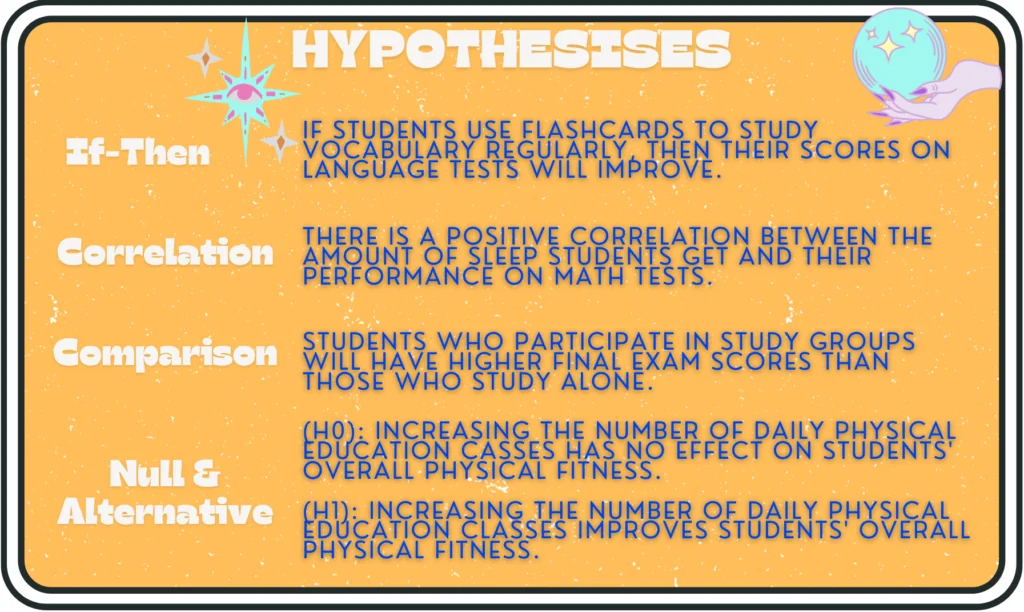
FAQ
Follow us on Reddit for more insights and updates.



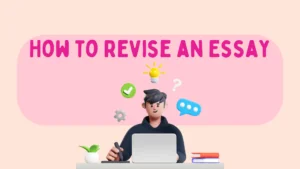

Comments (0)
Welcome to A*Help comments!
We’re all about debate and discussion at A*Help.
We value the diverse opinions of users, so you may find points of view that you don’t agree with. And that’s cool. However, there are certain things we’re not OK with: attempts to manipulate our data in any way, for example, or the posting of discriminative, offensive, hateful, or disparaging material.